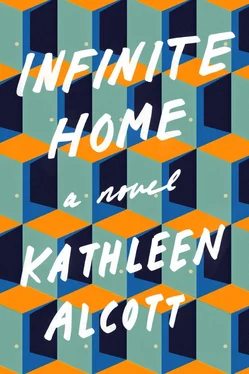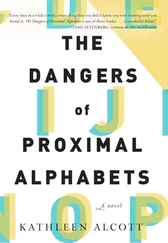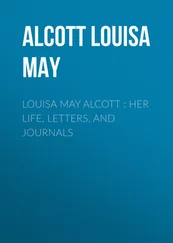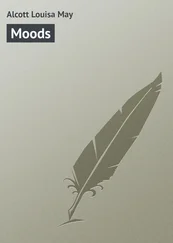Edward mentioned it later, at a cinder-block marriage of a Subway-KFC-ARCO where eleven-year-olds congregated to suck down cigarettes and a voice bleated over damaged speakers when a rented shower became available.
“What were you thinking? Just get rid of your phone? Think that was whimsical? What if mine was stolen! What if—”
He realized his mother and the anxiety he had inherited were glinting in his grating tone, and he recalibrated his voice. “Claude,” he said, unsure of when he had adopted the shortened version of her name, but certain some milestone of intimacy had been stomped over. “Wanna tell me why you’re acting like the entirety of Thelma and Louise sped up and played on loop? Mid-Life Crisis: The Musical? Should we do some screaming in headscarves, cut off our hair, prank call our exes? Is that it?”
Paulie slumped against the passenger window of the car, exhausted after singing to Jagger’s yowl, and they could see him napping from where they sat. Claudia brushed some crumbs of fried chicken off the table’s oily surface, folded her hands on the plasticked red, and put her head down and started to cry.
“I just want to have this. Can I just have it? Will you just let me have it?” She bolted upright again, and her fingers were straight and quick as knives as she passed them across her wet face.
“Have what? A terrifying sandwich served by a pregnant teenager named Kimmi? You just did.”
“Once I go back,” she continued, “everything is going to be different. I’m going to do what I should have done and make sure he’s always taken care of. I have to get Paulie and me a place together, build a client list and work from home. I have to keep him safe. Drew is losing his shit — who leaves someone not even two years into the marriage, he said, which, who can blame him — and that was him on the phone. He cries in some messages and swears in others. About every third one there’s some kind of threat.” She spit the words out low and hard, gnawing a tiny crescent of skin from her thumb, and he tugged the digit away from her mouth’s nervous bite, held it between two of his fingers.
“Okay. If you need me to support you in your no-holds-barred Spring Break-a-Thon, so be it. I’ll attach a boozy IV to your arm once we get to the Smoky Mountains. We can act out a commercial for herpes medicine, go white-water rafting and high-five on mountain peaks. But I have to ask you here to be a little bit cautious, and not drive so goddamn fast, and not start believing this is your very last shot at living. If you don’t start being a little more careful with yourself, I’m hailing the first Greyhound back to New York City.”
Claudia had never been known as beautiful. She had always dressed in high, flattering waists and dull gold ear studs, kept her brown hair tied and clean, her life small in the service of others. There, however, in the combination Subway-KFC, she loosened. His teasing coaxed her orthodontically corrected teeth into a smile that curved under her still-wet cheeks, and her hair fell tangled around her face, protesting a lifetime of imprisonment. She closed her eyes and began to nod, as though envisioning the cleaning of many rooms, the stacking and sweeping and mopping and finally, the space around her, gleaming.

HOW LONG HAD he been cross-legged on the stiff cowhide rug by the darkened fireplace? What was Jenny’s intention, sitting up in the wide sun-bleached bed, looking impossibly old? The tattoo on her arm was the same as that in the newspaper photo — a faded black circle that he recognized now as a snake eating its tail — and the line of the freckled jaw was similar to that of the little girl in Brooklyn, but she looked as though her body had been systematically deserted, memory by memory emptying out in single file. He kept searching for evidence of her taking in or releasing air. The room seemed a near-total void of history or evidence or yesterday or tomorrow: the sheets white, pristine in the way of nothing else on the property; for a nightstand, a slab of unpolished tree trunk; the curtainless window. Just beyond her, a doorframe revealed a small, low-ceilinged room, within it a black woodstove and two simple chairs stacked together. The smells of food, of things warmed by time and by bodies, were absent.
Finally, without opening her eyes, she spoke.
“Edith sent you.”
“Well — not — you see—” he answered, although it had been clear this wasn’t a question. The woman, once a child on the steps of the building Thomas had come to need, stopped him before his unorganized mumbling achieved any pattern.
“I’m afraid I can’t help.”
“But your brother—”
She put a palm up with the patience of someone directing the weak and hospitalized.
“That person is named Owen.”
Thomas sensed Jenny’s language was one half-forgotten, its structure uncharted, the pressure of the tongue against the palate to make a sibilant sound uncomfortable.
“I should not need to say that these people you mention are not part of here.
“However,” she continued, “I can and will give you the same option I give others who come to me. You can stay here for a week, and stay quiet. If you still have the same concerns then, you may pose them. But I find”—and here she readjusted the pillow behind her back and put a hand to her jaw—“the questions tend to change.”
—
ONLY THROUGH TRIAL AND ERROR did Thomas learn that Jenny — or Song, as he’d tried to start remembering her — meant precisely what she said. No one punished him for speaking — not when he addressed her, or any of the men who arrived with plates of grainy cornbread and boiled, dirt-caked spinach and fried eggs over brown rice — but his words didn’t seem to make it any farther than his lips. They didn’t glare at him or admonish him when, during the first twenty-four hours, he continued to ask, “Would it be possible for me to bathe? Could I make one phone call?” But neither did they acknowledge the sound; they only gazed and blinked, as though waiting for some unseen photographer to press down a button. It’s either like checking into a hostel where no one speaks your language, Thomas thought, or regressing into preverbal infancy, conceiving that care will be bestowed without even grasping the concept of trust. Neither option seemed ideal, but then neither seemed impossible to master. The discomfort of it was like a pulled muscle, unnoticed if he remained still.
By hour thirty-four, he had consigned his old urgency. He dipped his feet into little pools of memories, walked in and around them, trying to absorb every side. A nameless and cinnamon-scented teenage babysitter guiding Thomas’s tiny fingers into pots of primary-colored paints, then across the page. His mother at her happiest, alternately darkened and illuminated by a romantic comedy at the multiplex theater, her hand hovering over an unending bag of popcorn, sometimes squeezing his in delight, calling him my love . His high school biology lab partner, a red-haired girl who had undressed in his bedroom while his back was turned and insisted he draw, instead of the assigned feline skeleton, her. The variously svelte and pilled couches he slept on his first months in New York, the friends and acquaintances to whom they belonged. An afternoon he draped himself across the parquet after he had hidden all his art away, trying to forgive it for leaving. His ear pressed to the wall to better hear Adeleine’s song. The end of a film moving across her face. He entered and exited these rooms blithely as the hours passed, sometimes dozing off under a thin blanket, sometimes waiting, with a flat, simple hope, for food.
Читать дальше













